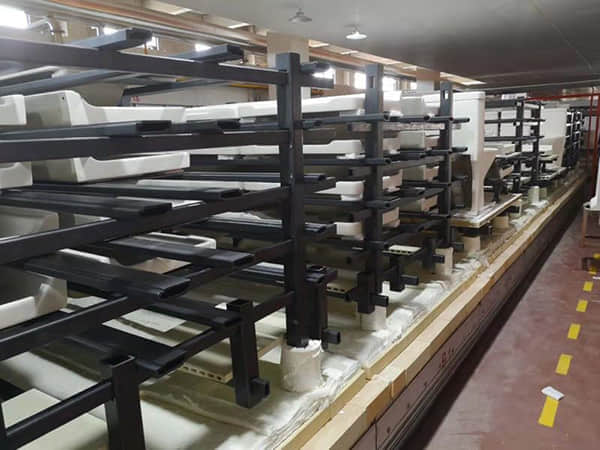Silicon carbide (SiC) roller is a versatile and high-performance tool that has gained significant recognition in various industries. This article explores the uses, production process, parameters, and usage scenarios of silicon carbide rollers, highlighting their impact on industrial applications.

Uses of Silicon Carbide Roller:
Silicon carbide rollers find extensive applications due to their exceptional properties. They are widely used in industries such as ceramics, glass, steel, and metallurgy. These rollers are primarily utilized for kiln shelves, furnace furniture, and conveyor systems. Their high temperature resistance, excellent thermal shock resistance, and superior mechanical strength make them indispensable in these industries.
Silicon Carbide Roller Production Process:
The production process of silicon carbide rollers involves several steps. It begins with the selection of high-quality silicon carbide powder, which is then mixed with binders and additives. The mixture is shaped into the desired roller form using advanced molding techniques such as extrusion or pressing. After molding, the green rollers undergo a sintering process at high temperatures to achieve their final density and strength. Finally, the rollers are carefully machined and polished to meet the required specifications.
Silicon Carbide Roller Parameters:
The success of silicon carbide rollers lies in their exceptional parameters. These rollers possess excellent thermal conductivity, which ensures uniform heat distribution during high-temperature processes. They also exhibit low thermal expansion, minimizing the risk of cracking or warping. Additionally, their high hardness and wear resistance enable them to withstand heavy loads and abrasive environments. The precise control of parameters like porosity, flexural strength, and surface finish ensures optimal performance and durability.
Silicon Carbide Roller Usage Scenarios:
Silicon carbide rollers are employed in various usage scenarios across industries. In the ceramics industry, they provide a reliable platform for firing and sintering ceramic products, ensuring uniform heat transfer and preventing deformation. In the glass industry, these rollers support the transportation of glass sheets through tempering and annealing processes, maintaining their flatness and quality. In the steel and metallurgy sector, silicon carbide rollers are used for continuous casting and rolling of metal sheets, offering excellent resistance to thermal and mechanical stress.
Silicon carbide rollers have revolutionized industrial applications with their outstanding properties and performance. From ceramics to glass, steel to metallurgy, these rollers have become an essential component in various manufacturing processes. Their ability to withstand high temperatures, thermal shock, and mechanical stress makes them a reliable tool for numerous usage scenarios. With continuous advancements in production techniques and material science, silicon carbide rollers are expected to further enhance industrial efficiency and quality.












